Fascism Lite: The Lessons Learned this Time Round
There are several lessons about fascism between the Wars that have particular relevance for our own time. First, fascism is not confined to a particular time, place or set of economic conditions in the past. Fascism is not just grainy black-and-white photos of Depression-era Europe.
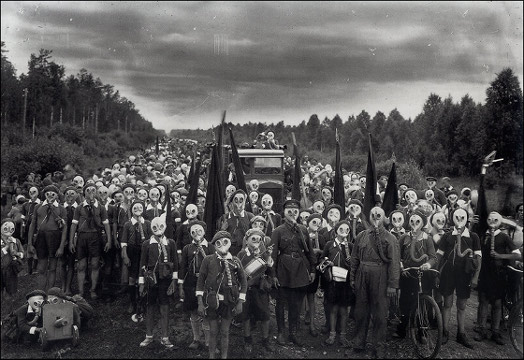
Fascism is and always has been global. All the major industrial countries of the west have had their fascist movements and political figures and still have them today. Fascism doesn’t just speak German and Italian.
--Between the Wars, the Far-right seized power through electoral means, as well as military coups and civil wars, first in Italy (1922), Finland (1929), Japan (1931), Portugal (1932), Chile (1932), Germany and Austria (1933), Hungary, Greece (1936), Brazil (1937), Spain (1939), Slovakia (1939), and Romania (1940)--
Second, Fascism has a distinctive look. You can spot a fascist politician with the volume turned off. Most still look ridiculous, even though they’ve traded in starched uniforms and big hats for expensive business suits.

:format(jpeg)/cdn.vox-cdn.com/uploads/chorus_image/image/47845677/495150542.0.jpg)

National leaders are less essential to fascism than they used to be. Fascist Light politicians are often chosen for their lack of real ideas and ease of replacement. They are less dangerous to those who really make the decisions than the dictators of old-fashioned Fascism. That is a lesson learned from the last go around - Third Lesson: leaders are dangerous, make them disposable. The Fourth Lesson: Fascist leaders are cultivated, funded and carefully selected. They do not spout up like weeds.
Fifth, Fascism can appear during periods of peak economic growth and concentration of income; it does not have to be incubated in industrial collapse and Depression.

Sixth, it can happen here, and has happened here. An inherent part of fascism is the militarization of everyday life along with the state. There are soldiers and tanks in the streets in America. Just because their body armor says P-O-L-I-C-E, doesn’t mean that these aren’t soldiers. Fascism is not only fashionable, it‘s also self-consciously kinky. Girls with big guns and black uniforms in London.


It’s not just an American and European thing. Japan followed Italy and Finland as the third fascist state in 1931. China, today, is a fascist police state. For all its towering new buildings, electronic gadgets, shiny cars, and smiling officials who also now wear nice business suits, China is fascist.
Tanks in the street - that’s how China transitioned from a Communist state to a Fascist state:
But, even though the chunky Mao suits are gone, the unisex polished black boots are always in style.

As we’ve seen many times, Fascist states often emerge out of failed democratic republics. The widepread emergence of fascism within a liberal economic system is a strong indicator that business elites believe a persistent crisis threatens to turn into a popular uprising. The collapse of liberal politics into fascist politics is not so much caused by Depression, it is instead a sharp warning of Depression and World War to come.
If one defines Fascism as the degree to which a society is militarized, it is already here.
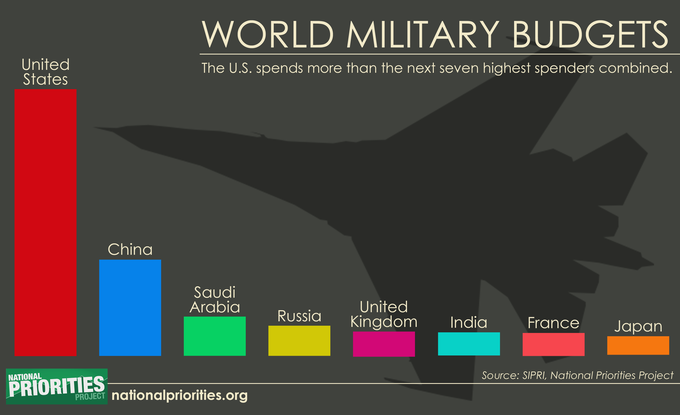
What’s Happened Before, and Things to Come
In several important ways, the decade after the Great War of 1914-1918 was a period that strongly resembled our own.
Rising wealth attendant to economic liberalization and international finance after World War One – and the increasingly unequal division of incomes, particularly in countries and industries that were heavily dependent upon international trade and investment -- created the conditions that favored fascism, and inequality is back with a vengeance in the English-speaking democracies, a century later.

As in the 1920s, the political map of the world has been redrawn during the last decade. The U.S. and NATO countries have swept to the right, as has most of Latin America. Since 2010, ruling liberal democratic and social democratic governments have been replaced across Europe by Right-populist figures at the same time that stock market indexes have peaked along with measures of economic inequality.


[The above map is several years out of date. Spain and Portugal have since elected Leftwing coalition governments.]
The same Rightward sweep has simultaneously occurred across Latin America:

Countries in red indicate left-wing governments as of 2011

Countries in blue indicate right-wing governments as of 2018
Fascism by definition involves militarization of society and mobilization against an external threat, usually both a state and a “foreign” minority population or ideology, often targeting immigrants and ethnic or religious minorities for expulsion and persecution.

(Detained women and children awaiting deportation, ICE detention facility, Texas)

In many cases, fascism is a transitional stage between wars of militarized states that have failed to demobilize. In our own time, reemergence of the Cold War has been accompanied by sharp movements to the Right in a string of western elections. Today, a crisis of confidence throughout the post-Cold War liberal democratic world is accompanied by dramatic political instability, polarization, and rising hysteria about external threats from Russia, "illegal aliens", and Muslims. It is, as usual, the weakest, the refugees and upended victims of wars, who are blamed for this movement, but they are a symptom not the primary cause of the Rightward shift of the western world. The plunge into Fascism (or Corporatism) -- not populism -- is the right word for it, has been imposed from above, not arisen from below. That is another lesson of the last Century.
Finally, when we examine the political messaging from the 1920s alongside our own era, fascism proves to not be a true mass movement that emerged spontaneously. In both eras, Fascism is more the product of advertising agencies and copywriters than an organic expression of grass-roots popular sentiment. Goebbels adapted recent developments in commercial advertising to the political sphere, including the use of catchy slogans and subliminal cues. Unlike genuine populism, which can be so parochial that it is barely understandable to outsiders, fascism follows a distinctive and easily recognizable set of universal symbols, messages and forms that can be adapted almost anywhere.
The traditional style and emblems of fascism are obvious in Washington, where neoclassical architecture and symbols abound, evoking the power and authority of Rome. Bold fonts, vivid colors (red, black, white, royal blue and imperial purple). Broad gestures, self-adulation, applause. The message hasn’t changed much in 2000 years: S.P.Q.R.
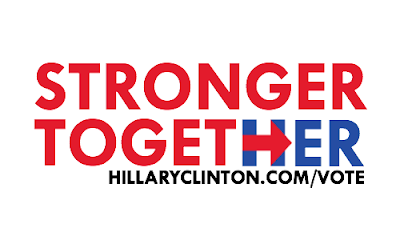
Fascism developed according to a standard business model with a media strategy that can be adapted to almost any country and is durable, virtually unchanged for over a century. You can usually spot a fascist politician with the volume turned off (in case you didn’t hear that the first time).
Fascist regimes are grafted onto the backs of populist movements, dividing and weakening them. It may also be transplanted from abroad and cultivated by transnational economic elites, almost always as a means of coopting or suppressing indigenous socialist and popular movements. There is not a single case of a fascist movement that has ever come to power without the guidance, media management skills and funding of at least a substantial segment of the business establishment, usually aided by international cartels. If one wants to understand and do something about the spread of fascism, look at the Oligarchy, which is the essential agent of the failure of democracy.
Let’s look at specific examples, at the string of newly emerging or weakened republics that failed after the 1918 Armistice, and the authoritarian regimes that emerged in their place. Like so many boots marching across the same cobblestone in a parade ground, it was a simple one-two step to mobilize support for Fascism within publics hardened by years of war and propaganda. Here’s how the West was instructed to march to the Fascist beat during an earlier post-war era of highly unequal growing economies.

Between the Wars, the Far-right seized power through electoral means, as well as by military coups and civil wars. That happened first in Italy (1922), Finland (1929), Japan (1931), Portugal (1932), Chile (1932), Germany and Austria (1933), Hungary and Greece (1936), Brazil (1937), Spain (1939), Slovakia (1939), and Romania (1940).
As the wealthy got far richer during the Roaring Twenties, companies and businessmen organized politically across borders as a self-interested bloc, mostly through multinational corporations such as Standard Oil, DuPont Chemical, Anaconda Copper and Ford Motor Company operating globally through foreign affiliates from Germany to Chile.
Emerging global investment banks such as Brown Bros. Harriman and the Sullivan & Cromwell law firm linked Wall Street and the City of London with like-minded financiers, lawyers and industrialists in offices across Europe, Asia, and in Latin America.
To see the impact of multinationals on democracy, one may look at the small “laboratory for free market economics”, Chile. Chile has a long history of elections, going back to 1838. Until the Pinochet Junta, it was the world’s second oldest democracy. But, during most of that period, its economy was dominated by foreign companies and it also had more than its share of bloody massacres. For a century, Chile’s main exports have been nitrate and copper. Nitrate is the primary ingredient of gunpowder, and competing British and German firms were largely taken over after World War One by the Anaconda company, headquartered in Butte, Montana as a Rockefeller family holding until it was sold to ARCO in 1977.
Thousands of striking miners in Chile were machine gunned to death during the 1920s and 1930s.
Business around the world runs politics like a business, top-down, employing the same tools and methods that they had developed to operate large companies and marketed products. Standard Oil gets its name from its standardized motor lubricants and gasoline processes and packaging.
Beginning with techniques of emotional persuasion during the First World War, the Right-wing developed fascism into a distinct political brand with the help of Madison Avenue. During the 1920s and 1930s, fascism became merchandized largely as a consistent product in accordance with the emerging norms of corporations and the uniform tastes of mass advertising and entertainment.
Ambitious professionals from New York, London and Berlin advertising agencies and press bureaus produced a steady stream of cult-like messages tailored for locally-recruited charismatic Right-wing politicians. They stressed modernism, self-empowerment and identity in politics much as Edward Bernays had laid out in his formula for consumer advertising. Selling Nazism was like selling cigarettes:

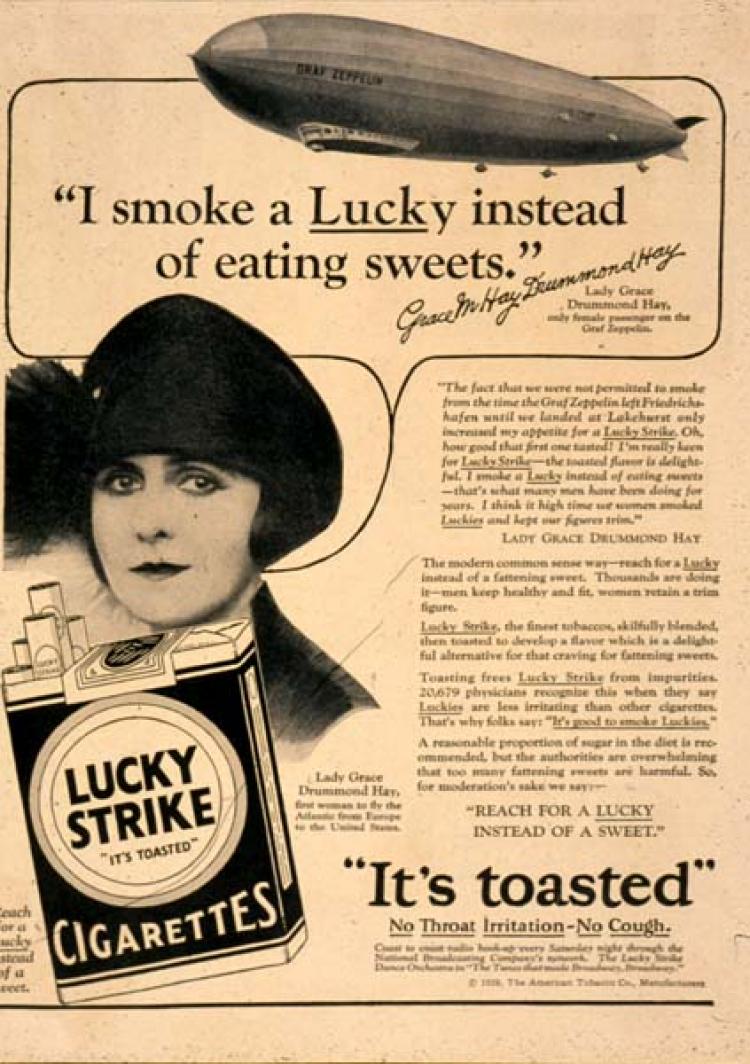
ANOTHER LESSON: It's Easier to Sell Fascism than to Control It
The politics and public attitudes after the Great War were shaped by the militarizing experience of World War and international reaction to the 1917 Russian Revolution. Once conditioned to embrace authoritarian figures and patriotic symbols, from there, persecution of designated domestic subversives and scapegoated minorities was as easy as putting down your right foot. Perhaps, too easy and impossible to stop beyond a certain point.
It has been often said that liberal democracy and trade promotes peace. The truth is, the wealthy can make money at any time.
What economic elites actually prefer is for government to continue spending and funneling ever-increasing amounts of public debt through private banks. Preparation for war does splendidly to stimulate spending. Another goal is for government to allow preferred firms to concentrate into cartels and monopolies. Ideally, those objectives should be realized without the risks of loss, high taxes and bureaucratic regulation that actual wartime mobilization incurs.
As Europe and Latin America between the wars showed, Fascism holds the added benefits of labor and social discipline that comes with authoritarian rule.
Capital learned several lessons from its experiments with fascism during the 20th Century. The Great War and World War Two both proved to be boundless stimulus for financial investment and GDP growth that boosted business revenues and profits in many industries. However, it came with two unwanted costs: governmental regulation and high wartime taxation on business. The third lesson was that the much of the capitalist class in Europe was obliterated during World War Two and the Soviet Union survived, so it was not a universally successful experiment.
With the spread of nuclear, chemical and biological weapons, continued full-scale war mobilization and even limited permanent war is held to be too risky, today, even for those institutions that maintain competitive advantages through quantitative risk management. We have thus entered the Postmodernist age of simulated warfare, where Oligarchs and each country’s secret services create an environment of controlled chaos through terrorist outrages and regime changes that merely justify continued expansion of military budgets but with minimized damage to infrastructure, except where planned to create temporary supply shortages and predictable price spikes.
Another characteristic of fascist regimes is tax reduction or elimination for corporations and the wealthiest top brackets. As shown below, the tax burden in America has also almost disappeared for corporations. Those who are wealthy enough to plow back earnings into equity or who simply "borrow" (income not taxed) at negative real interest rates from themselves also escape taxes. Other favored tax dodges of the very wealthy are the personal use of non-profit foundation and company-owned residences, aircraft and amenities as nontaxable subsidies of their own living costs.

Fascism, or "Corporatism" as Mussolini correctly termed it, seemed to offer bankers and industrialists the best of both worlds – large state subsidies to business, cooptation and control over labor unions, and expanding markets, without real government controls -- a seemingly attractive package. Charismatic figures of the Far Right, such as Hitler and Hirohito however, once in power, pursued their own imperial, nationalist agendas that led directly back to war. That wasn’t entirely welcome in all board rooms. The problems with the permanent warfare state weren't really fixed until the deregulation and wholesale shift of the tax burden onto the middle-class that occurred during the Reagan era. What has followed has been various shades of Fascism-lite within increasing unequal societies.
One thing that has stayed with us, with a short breather for a decade or so after 1991, is anti-communism. The politics and public attitudes after the Great War were shaped by the militarizing experience of World War and international reaction to the 1917 Russian Revolution. Once conditioned to embrace authoritarian figures and patriotic symbols during wartime, from there, persecution of designated domestic subversives and scapegoated minorities is not a hard sell.


World War One had fundamentally changed the nature of democratic governments and their relationship to corporations and citizens. Wartime governments all became more centrally-controlled, placing more power in the Executive and agencies, with less accountability to legislatures and traditional elites. The Great War also created enormous state bureaucracies pumping capital into giant corporations of unprecedented size and market dominance. The Great War also utilized state-directed mass media that reached deep into the minds of citizens through newspapers, cinema and radio, mobilizing publics making them obedient to national authority, agitated and aroused against designated international enemies.
Almost immediately after hostilities ended in 1918, industrial unions moved to raises wages frozen during the war. This happened almost everywhere worldwide there was an industrial population. A series of massive strikes occurred in virtually all industrialized countries. Left-wing parties pushed for higher wages and social reforms and, in many countries, revolutionary movements seized control of factories and municipalities. The reaction was often to put down strikes and insurrection by force, and in many places, industrialists financed their own militias when civil authorities did not respond with what they considered immediate, effective application of force.
In Italy, for example, during the September 1920 factory occupations by socialist and communist workers, Italian industrialists attempted to pressure Giovanni Giolitti's government into sending troops against the strikers and socialist backers, but Giolitti refused to use force against them and thus some of Italy’s largest industrialists turned against the liberal system. As early as 1914, FIAT's Giovanni Agnelli, Carlo Esterle of the consolidated electrical industry and Mario and Pio Perrone of Ansaldo heavy armaments industries began financing Mussolini's Il Popolo d'Italia as a means to undermine the Italian Socialist Party.
The post World War One era was a time of mass dissatisfaction with rising inequality and political polarization. Right-wing extremists were armed and organized into “color shirt movements” funded by wealthy industrialists to suppress Left-wing parties and labor.
“Color Shirt” Mass Movements Emerge in Europe (1920-40)

The environment of hysterical anti-communism imperiled and brought down numerous struggling constitutional democracies. It happened not in just one or two countries, and not just in one region, but in every region, worldwide. The rise of authoritarian regimes and movements during the 1920s and early 1930s, and the weakening of the Center-Left was not – contrary to the conventional wisdom –merely the direct result of the mass unemployment and economic suffering of the Great Depression.
During the period 1918-1940, the assumption of power by Right-wing regimes, either by election or coups, occurred both before and after the onset of Great Depression.
In the 1920s, Fascism actually took root during a period of strong economic growth in most countries that had been involved in the War. Armed Rightist insurgencies and actual collapse of elected government was most likely to emerge where large, concentrated firms and upper-income elites threatened by Socialists organized and bundled their money to back ambitious military figures, buy guns for militias and finance the authoritarian regimes they wanted. Fascism is not really an organic mass movement, but is instead revolution from above that harnesses myriad popular fears, hatreds, and discontents.
The primary exception to that pattern was in the English-speaking countries that had not seen recent fighting on their own soil, without a recent history of military government and where military weapons were not widely available. Even here, it could have gone the other way, had not General Smedley “War is a Racket” Butler not blown the whistle in 1933 on the Morgan Bank-Dupont family financed “Banker’s Plot”. Similarly, in late May, 1940, Winston Churchill’s War Cabinet came within a whisker of signing off on a clandestine deal with Hitler negotiated by Viscount Halifax, his foreign secretary and head of the wealthy appeasement wing of the British establishment, via Mussolini.
A Rightward lurch into authoritarianism across much of the world after 1918 was actually the continuation of war-time militarization of the state, concentrated industry and a heavily propagandized society. The “yellow press” of Lord Beaverbrook, First Minister of Information (1918), and William Randolph Hearst promoted the daily line laid down by international banks and industrial combines which financed German industrialists who bought party headquarters and machine guns for fascist militias. Hearst gave Mussolini his own column, even providing ghostwriters who penned persuasive and compelling copy that was read by millions of Americans during the 1920s and 1930s. [https://www.thenation.com/article/devil-and-mr-hearst/]
Eventually, the outright endorsement of fascism by the establishment became hard to disguise, as these two extracts from both sides of the Atlantic 1934 show:
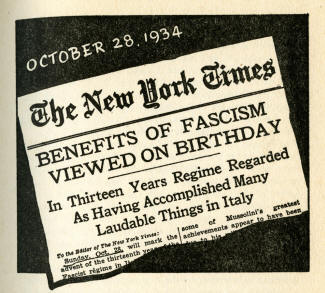

Widespread public attitudes of obedience, conformity and fear of externalized enemies had become internalized, normalized and continued after the Armistice. Right-wing mass politics of the era were shaped by the international reaction to the Russian Revolution and fears of social revolution shared alike by industrialists and clerics. It was in that shared psychological environment of militant anti-communism and hysteria over Russia that Italy and then Finland and half a dozen other former democracies embraced Fascism.




Comments
Two questions
How do you judge the economic failure of the Weimar Republic as an apriori opening for the Nazis' to gain political advantage? Not sure how that fits into your excellent analysis.
What about Woodrow Wilson, his cabinet and associated think tanks/University groups that admired European Facism and lauded Musolini? Those surrounding him continued in influential government positions for years after his passing.
Prof: Nancy! I’m going to Greece!
Nancy: And swim the English Channel?
Prof: No. No. To ancient Greece where burning Sapho stood beside the wine dark sea. Wa de do da! Nancy, I’ve invented a time machine!
Firesign Theater
Stop the War!
I responded to that question but it went to the bottom of the
thread. Didn't know to retain the parent links. Now I know.
If capital (or profits) is the driver of fascism
...there would have been nothing but fascism in the industrial and post industrial world.
Just about every country has had a Fascist Party at some point in the 20th century. Something very specific drives it. What is it?
If you are going to feature Trump in your photos, then you
also need Obama, Bush,...etc.
Or are you trying to say the U.S.A. has suddenly entered a new era of Fascism because of Trump?
chuck utzman
TULSI 2020
Yes, injecting the “Orange Man Bad” anti-Trump trope seems lazy
and undermines the seriousness of the rest of the presentation.
The Spanish-American War was fascist (imperialist). Annexing Hawaii was fascist (imperialist).
The figure of Trump may make the fascist nature of the system easier to see, but who’s really driving the fascism to new depths? Not Trump — it’s the figures we don’t see, at the intelligence agencies and the surveillance companies (Google, Facebook) disguised as ad networks.
Yes, I agree and
we must remember how we ended up with Trump too. Without the failure of the Obama administration to even try to deliver what he promised thus destroying the hopes of many voters, particularly in the Rust Belt, and without the cheating by Hillary Clinton and the Democratic party of the populist movement behind Bernie Sanders and the elevation of Trump via the "pied piper strategy," we would have never ended up with Trump in the White House to begin with.
Trump did not begin this march toward fascism. It was well in place by both parties long before Trump ever decided to run. Trump is the natural culmination of corrupt corporatist policies on the part of both the Democratic and Republican parties and administrations.
And I would add to the above, most importantly, the bankers, who regardless of how this all turns out will win.
In a way, it is far better that we see it out in the open now. It is just tragic that we did not recognize it sooner.
Do I hear the sound of guillotines being constructed?
“Those who make peaceful revolution impossible will make violent revolution inevitable." ~ President John F. Kennedy
Trump is a symptom not the cause of Fascism, which is 100 years
old. I debated with myself whether to include a shot of him for that very reason, but since he's in power, and since he and Pence are so ridiculous, and are fascist (how light, we will see), I just couldn't justify omitting them. There are others in the G10 who could be included in this group, but it would simply grow too long.
Wow, man
Maybe the kids in school could be exposed to this form of rational discourse. It changes history as it's being taught.
Zionism is a social disease
As shown, Depression is not a precondition for Fascism
If you look at the timeline of states that where fascist regimes and mass movements were cultivated, that line goes back to Italy in 1922. The Weimar Republic went through a series of increasingly authoritarian governments after it was established in 1919. Even the Nazi Movement moved to the Right over the same period. Social Democracy didn't fail all at once in Germany in 1933 with the appointment of Hitler as Chancellor.
While Germany had serious economic problems throughout after 1917, mass unemployment in heavy industrial sector wasn't really the driving political factor behind the growth of the Nazi Party. Prices and demand plunged worldwide for commodities and industrial goods after the 1929 Crash, heavily impacting foreign investment and exports in all countries.
Wilson's Administration was highly authoritarian, as the 1919 Red Scare showed, but centralized propaganda and censorship was released back to the private sector where it had always actually been self-imposed. Most wartime controls over industry and wages were also lifted, but cartelization remained to a degree that had not been tolerated before the War. Big business stayed big during the decades that followed, as did the use of violence to put down strikes in America until the late 1930s.
What I'm hearing here
The coming dollar crash is going to be the trigger for full on fascism. I can see it spinning up already by the 'news machine'
Everything is broken. B. Dylan
Zionism is a social disease
She appears a bit later in the story
Note the many symbols of Fascism and authority in that picture. It's staggering. Hence the reference to the motto of Rome. Fascist imagery is very much an affliction of both American political parties.
Fasces, or bundle of rods: perfect symbol of “Stronger Together“
In fact, when I was a kid, America was still putting the fasces — the symbol that gave fascism its name — on the back of every silver dime.
And there are fasces on the seat of state in the Lincoln memorial.
And what about that flag pledge?
When I first started working in Germany in the 1970s, my co-workers were incredulous when I told them about having to “pledge allegiance to the flag” every morning in grade school.
The U.S. occupation of Germany and the tenets of “anti-authoritarian pedagogy” had impressed upon their generation that such indoctrination had no place in a free society, and was to be found only in societies like East Germany or the Third Reich.
That's the point. Various degree of Lite has become the
mainstream political movement of virtually all countries since 1922, one after the next. It is not the exception, but the rule. The Cold War cemented that into place. We can argue about degrees, but Corporatism is the norm while Social Democracy is waning.
If the primary lesson of Fascism Lite is unlearned -- that full
on fascism leads to full-on war -- and when simulacra war gives way to the real thing, then the global system as we have known it for over a century ends, along with everything that goes with it. There cannot be any winners, we can all just pretend to continue playing.
International relations in the nuclear age is all about elaborate games playing designed to maximize advantage between players without actually going over the threshhold of first-use. Read the papers of Herman Kahn at the Hudson Institute and early Henry Kissinger to appreciate that.
The question is, do the people in power remember that it is really a game of pretend?
Ain't pretend for them
they think it's real. The challenge for them is to convince us it's no more than a scam. Yeah, threaten us with the playground bully routine. It's my world, so I make the rules. If you don't want to play that way, then I can blow it up. Biggy wow-wow. Not impressed by the imperial rule crap no more. Ya' wanna blow up the world to prove you can, go ahead. I ain't gonna stop ya. Your karmic / moral standing just shrunk down to ittsy-bittsy. Why have we no more respect for the laws anymore? Cause you be breaking em all over. Sheesh.
Zionism is a social disease
The winners are those who lend money to, and arm, both sides
Nukes aren’t for using, they’re just insurance, a last-ditch threat and safety net for the casino owners.
The actual game, the casinos’ meat and potatoes, remains money-lending and the huge trade in conventional arms.
^^^Bingo!!!^^^
It always was and has been, follow the money. In the end, the bankers win.
Do I hear the sound of guillotines being constructed?
“Those who make peaceful revolution impossible will make violent revolution inevitable." ~ President John F. Kennedy
The Europe map...
is a bit misleading.
Spain has recently changed to a more left leaning government after the Rajoy/Catalonia debacle.
In Italy, the far right League party only governs in coalition with the far left 5-Star party.
In France, Macron's collapsing center means the country may end up following the Italian model.
In Britain, the Tories are on their last legs with Jeremy Corbin waiting in the wings.
In Portugal, a left wing coalition government is having great success.
So not all as bleak as the map would suggest - at least in Western Europe anyway.
The current working assumption appears to be that our Shroedinger's Cat system is still alive. But what if we all suspect it's not, and the real problem is we just can't bring ourselves to open the box?
Yeah man
Didn't look quite correct. Portugal is way left of that chart. More truth manufacturing at work.
Zionism is a social disease
Thank you, again, and made and made a note at the bottom of
the second Europe map. I agree that the situation has moved back a bit, and that is encouraging, but the long-term push to the right while the wealthy aggregate wealth and power remains the overall pattern. It's that linkage, along with the agency role of finance capitalism, that I think is missing from the conventional theoretical construct of fascism. Sorry, my initial response sunk to the bottom of the thread.
The Europe map is several years old. Glad you
identified the changes in Portugal and Spain. There is similarly no question that the Tories are on their last legs and that Macron's days seem numbered. As for Italy, the Center-Right coalition of Salvini got the most votes in the March elections and it is not at all clear that the Five Star Movement is entirely "Far Left" (it is anti-immigrant) or where it falls on the spectrum, if indeed it can be classified that way. Nonetheless, the rightward shove from above is, unfortunately, the general rule so far this century. I wish that were not the case, and agree we're due for some leftward oscillation.
However, the previously prevailing 30 or 40 year Social Democratic-Center European political norm has been disrupted. That rupture did not start all at once with the 2011 outflow of refugees from MENA, although it was clear from the beginning that regime changes along with the mass outflow of refugees and terrorist cells within it would strengthen that Rightward trend. To Clinton, Berlusconi, Sarkozy, and Cameron, and the CIA/MI6/NATO types, that could not have been a surprise and was perhaps not altogether unwelcome.
Authoritarian rule isn't an accident, and it is likely to get worse in an environment of deepening confrontation with Russia, China and Iran.
leveymg...
the reason your replies aren't displaying in the right place is because you are removing the parent links. Parent links appear in the text editor as an @ symbol followed by a # symbol and then some numerals. Leave the parent link as is when replying to a comment and it will nest in the proper position. When you remove the parent link the comment defaults to the bottom of the comment queue and appears as a comment to the original essay.
Any questions just ask.
Thanks. Wondered about that.
Maybe the parent links should say do not remove .
Not really necessary...
usually I or someone else will explain it to the poster, once is usually enough. Adding "do not remove" would cause the parent link to not function properly.
Police are being sent to Israel to be trained by its military
and they no longer see us as the citizens that they are to protect and serve any more. They see us as insurgents that are needed to be put in our place when we get fed up and get into the streets. Or if we try to stop companies from putting in another oil pipeline that will eventually leak and pollute the waterways. Or use our right to protest the government from passing legislation that ....
Police in lots of European countries aren't even armed with guns, just billy sticks and pepper spray. When they need some fire power they have special units for that. I'm guessing that will be changing soon though since the roving austerity policies are making their way across the globe.
The message echoes from Gaza back to the US. “Starving people is fine.”
Combat vet exper. in Iraq, Afghanistan, now Syria, may not be
the ideal job training for hiring cops, unless you want them to do here what they did there. Better yet, Americans should never had that experience to begin with.
This problem is as old as civilization
On one side you have the elites who believe that a society should be run by and for the elites.
On the other side you have a government that believes that they rule only by the authority granted them by the people and only in the interest of the people.
So we have reached a point where credulity is stretched beyond belief. In order to stay in power the fascists claim:
- the people do better under corporate fascism
- they have more freedoms under fascism
- socialism will only choke the economy and the people will have nothing.
- only fascism can keep the country safe from adversaries
These points are all illogical and easily proven wrong. The problem in the West currently is that the fascist doctrine is spoken loudly and repeatedly by the establishment and the media, but almost no one advocates for the opposite. Nancy Pelosi said it loudly and clearly - even though young people prefer Democratic Socialism, this will never happen in the US, this is a capitalist regime. The visceral hatred of anything to the Left in the US has risen to the highest point in my lifetime. Good luck!
leveymg-Excellent historical essay by the way.
Capitalism has always been the rule of the people by the oligarchs. You only have two choices, eliminate them or restrict their power.
Irrationality is at the core of commercial ads and product
design as well. Why else would someone commuting in a 7,100 gross pound pickup truck order a 1,200 calorie combo burger with large fries and Super Size Coke every day and then wonder why he has to take three different types of medication for Type 2 Diabetes, hypertension and cholestoral? Fascist politics is part of an irrational lifestyle package that relies upon continued access to cheap carbon fuels sustained by an $800 billion military budget, half of which is borrowed from Saudi Arabia and other regimes which continue to thrive only by perpetuating this system. Lots of feedback loops and many levels of bad crazy to this.
Exactly. All the feedback loops reward self-destructive behavior
From the macro level of capital and climate, down to the micro level of Facebook.
For Facebook money and stock options, the best scientific minds of a generation toil away at perfecting “dark patterns” to keep users addicted to the dopamine hit they get each time they hover and peck in response to stimulus, no more aware of what is happening to them than one of B.F. Skinner’s pigeons.
Excellent essay, leveymg!
This is a valuable history lesson. You have packed a lot of material in this one essay. Since I am way too many years removed from my learning of history, I am going to have to read this essay more than once to completely digest it.
Do I hear the sound of guillotines being constructed?
“Those who make peaceful revolution impossible will make violent revolution inevitable." ~ President John F. Kennedy
If there's a takeaway in there that I hope you look at more
closely it's that Corporatism, or fascism lite, is ours. America perfected it as the permanent Cold War state, the Chinese are taking it to its next level as a partially privatized total surveillance state with zero personal privacy.
I think we had our best shot with Bernie Sanders to turn things around, but the money wing of the Democratic Party was not going to let that happen. As it turns out, as he's recently let be known, Bernie was never really against the New Cold War and regime change "humanitarian" intervention, anyway. So, we would have ended up in sustained confrontation in the Middle East and Ukraine, and that requires continued Pentagon spending levels and maintaining the status quo in a thousand other ways. I just can't see the internal contradictions as being sustainable without blowing up in some disastrous fashion, either way.
Europe's only hope, if it wants to retain what is left of Social Democracy and its preference for the middle-class, is to reject everything about Corporatism, break-up cartels, wean itself off the Dollar, move away from the U.S., and find its own way in the world.
sanders' fealty to the zionist
project is also problematic, imo ('tragic; the IDF overreacted' stuff). but you might be interested in this recent longish thread by storify by red kahina on ‘what is fascism’ on twitter. she does add nuances such as 'often, but not neccessarily', although some of the names and labels she brings to bear i'm unfamiliar with.
When I was studying under Howard Zinn, I sat through many
a seminar with doctrinaire Marxist-Leninists seated elsewhere around the table. Yes, I am familiar with the lexicon and concepts and key events. I know that in 1935 the Third International had established that far from being a revolutionary movement, fascism was in fact the final stage of the imperialism of monopoly capital. Ever since, generations of Marxist historians have argued that fascism – and particularly the two regimes in Italy and Germany – was the product, either directly or indirectly, of capitalist interests.
Something else I learned under Howard is that in America there is really only one way to earn a living as a more or less doctrinaire anything is in academia, and that the academy is the living embodiment of "debt peonage" (a term of 15th Century Spanish not Marxist origin). So, I went elsewhere to hoe my rows.
While I tried to wade through my fair share of the pre-Marxists, e.g. Hegel, the Italians, e.g., Gramsci, Sorel, Pareto, the posts e.g. Husserl, Heidegger and Marcuse, and later the post-posts, e.g. Foucault, Derrida, I found that the further I got into it the more specialized the lexicon of various schools tended to divide rather than concentrate my understanding of history.
So, I will say that having tried for many decades to avoid falling in with any of the comfortable niches -- while stubbornly suffering for several decades of thinking for myself (something else Howard encouraged) -- I finally have to admit that the Comintern was absolutely right in June 1923 in its conclusion that fascism as a movement acts in the interests of "Big Capital".
But, having stepped into a few clearly marked traps along the way, I at least can say I avoided paying rent to any particular doctrine all these years.
thank you for the fulsome comment,
and demonstrating how well-versed you are on the subject. i'm relatively new to anti-capitalism, and it took obomba plus the indigenous at the Rio 2012 sustainability conference to teach me.
yes, good not to get trapped into academic labels, which rhetoric is always off-putting to non-academics like myself. i sure do wish i'd known of zinn's book when i could still read dead-tree, though.
Zinn was an excellent expository writer and an inspiring human
being. There's a good website that holds a number of excerpts of his work, here: https://www.howardzinn.org/tag/excerpts/
I remember him as being one of the most genuinely democratic people I ever met. Kind, generous, and welcoming of opposing views. He understood that there is no monopoly on truth and that group think doesn't produce interesting ideas.
That's part of the reason I enjoy this place, and I think Howard would, too.
Thank you leveymg...
that's a very nice compliment.
leveymg,
thank you so much for all of this great work, especially,
This important point is what is missing in the painful argument about Antifa and the shutting down of free speech on the part of anyone deemed to be Fascist, racist or misogynous. I feel there is a belief that the Nazis were a street gang and that because no one stood up to them by hitting them with bats, they became powerful enough to threaten the world.
This understandable belief ignores the industrial production of the German war machine made possible by United States banks, engineering firms, and most especially Standard Oil. And thank you for mentioning Sullivan & Cromwell, attorneys for these firms, whose lead attorneys, the Dulles brothers, became our State Dept. and CIA after the war.
Nice history lesson. My big concern with Antifa is that they
have been manipulated into conflating Trump supporters with Fascism. They seem to be impervious to reason and impossible to dialog with. They think anyone with a MAGA hat is a Nazi and fair game for violence.
(The Ballad of Tom Joad)
chuck utzman
TULSI 2020
Without Thyssen, Kirdorf and the Dulles Bros, the Nazis would
have been little more than just that, a forgotten Far Right street gang.
Without the early and generous support of United Steel Works Chairman Fritz Thyssen and coal mining magnate Emil Kirdorf, the NSDAP would never have been able to buy the Brown House in Munich and organize as a national political party.
In the 1990s, John Loftus and Joseph Bendersky connected the dots that showed the Dulles Brothers connections through Prescott Bush at Union Bank and the huge backing of the Harrimans, with Fritz Thyssen, who went on to author, "I Paid Hitler". A law suit brought by Auschwitz survivors a few years later was dismissed by U.S. Judge Rosemary Collier. https://www.theguardian.com/world/2004/sep/25/usa.secondworldwar (FYI: Collier would go on to be the FISA Court Judge that eventually granted the FISA warrant that allowed the FBI to use Carter Page to carry a wire into Trump Campaign.)
Without the active intervention by Wall Street, Thyssen would have been just another financially ruined casualty of the Great War and Kirdorf (a largely neglected figure) probably would have been dragged from his office by the Socialist Parliament and coal miners he so despised.
The Weimar Republic and about 40 million people probably would have survived without the intervention on the side of German capital by Sullivan & Cromwell, Anaconda Copper, the Rockefeller's First National Bank, and Brown Bros. Harriman. Oh yes, I almost forgot Freidrich Flick. According to the Guardian piece I linked above (when it was the Guardian):
I've looked at the US funding of Nazis
...through a US-centric lens:
The capitalist doctors Dulles, prescribing NSDAP as poison chemo
Poison chemotherapy for the body politic, with the intent of beating back the “cancer” of Bolshevism.
By now, it’s a wonder we aren’t writing “hitler” with a small “h” — just another genericized trademark expropriated from German owners, like heroin and aspirin.
An up-to-the-minute overview from a Green-leftish perspective
of the state of right-wing populism in Europe — in particular, concrete details about the New Right’s media strategy in each country.
(In German, but the maps and charts may be useful even without much knowledge of German)
https://taz.de/efr/Der-rechte-Propagandakrieg/